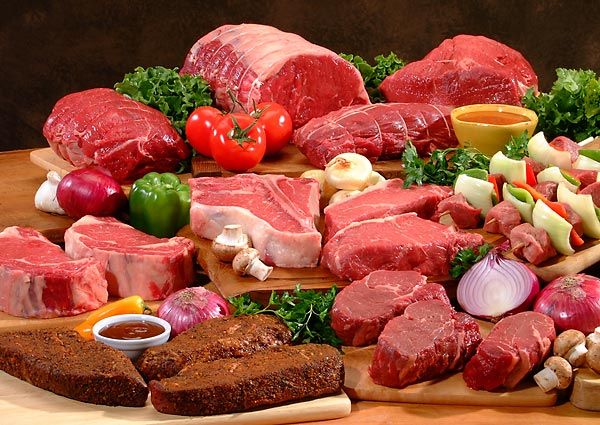Medical expert of the article
New publications
Red meat consumption triggers bladder cancer
Last reviewed: 01.07.2025

All iLive content is medically reviewed or fact checked to ensure as much factual accuracy as possible.
We have strict sourcing guidelines and only link to reputable media sites, academic research institutions and, whenever possible, medically peer reviewed studies. Note that the numbers in parentheses ([1], [2], etc.) are clickable links to these studies.
If you feel that any of our content is inaccurate, out-of-date, or otherwise questionable, please select it and press Ctrl + Enter.
Two components of red meat – dietary protein and iron – can combine to form carcinogenic N-nitroso compounds, which increase the risk of bladder cancer. This is especially dangerous for people who, due to genetic variation in the RAD52 gene, have a low ability to eliminate the effects of N-nitroso compounds.

Chelsea Catsburg, a research scientist at the Keck School of Medicine at the University of Southern California, presented the findings at the 11th annual meeting of the American Association for Cancer Research.
Dietary protein consists of amino acids that can be naturally metabolized into biogenic amines.
The results of the study indicate that meat processing and storage increases the concentration of amines. Nitrites in the presence of amines can form N-nitrosamines, which have carcinogenic activity. In addition, heme iron contained in red meat affects the increase in the amount of nitrosamines and amines.
"The formation of nitrosamines occurs primarily in the stomach and intestines, so these risks have been studied in relation to the development of stomach cancer as well as colorectal cancer," says Dr. Catsburg. "However, there is some suggestion that these reactions may also occur in the bladder, especially in the presence of infections."
In an earlier study, Dr. Catsburg and her colleagues found that certain types of meat products high in heme iron may increase the risk of bladder cancer. This includes liverwurst and salami. In this study, the researchers looked at whether it was possible to reverse the damage caused to the body by carcinogenic N-nitroso compounds.
The researchers studied data from 355 cases of bladder cancer. Scientists found that the Rad52 gene polymorphism can negatively affect these processes, only worsening them. It interferes with DNA reparation processes, which makes a person more vulnerable to the effects of carcinogens.
The World Cancer Research Organization also recommends limiting red meat consumption to reduce the risk of stomach and bowel cancer.

